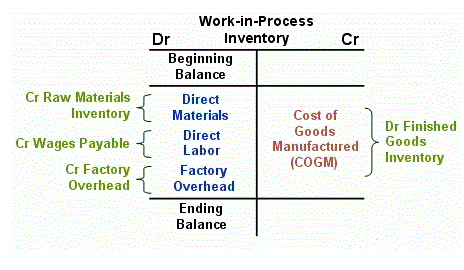- 26 de May de 2020
- Posted by: optehub
- Category: Bookkeeping

An accounting system is a structured framework comprising processes, procedures, and controls designed to handle financial data collection, recording, classification, summarization, and reporting. Essentially, it’s like the engine that drives a company’s financial operations, ensuring accuracy, transparency, and compliance with regulatory standards. Regularly reviewing your financial statements can help you to make sound financial decisions that align with your long-term business strategy. Additionally, analyzing your finances can give you the ability to determine what opportunities will work best for your startup because you will have a better understanding of your financial health. Every month, you should generate your financial reports and use them to get a clear picture of the current financial health of your startup. These reports can also assist you in determining trends in expenses and sales, which could help in creating your long-term financial strategy.
NetSuite’s accounting software is all about automation, which can be a huge time-saver (and stress-reducer) for businesses. Automation features include things such as creating journal entries and statement reconciliation. If you have five or fewer clients, you can sign up for FreshBooks’ Lite plan for $19 per month. The plan includes unlimited expense tracking, unlimited estimates, accept credit cards and bank transfers, track sales, see reports and send unlimited invoices to up to five clients.
Xero
This data needs to get organized into something more useful for the investors, creditors, and analysts interested in the startup’s performance. Just like a doctor treats a patient’s illness based on certain rules, an accountant follows standards when creating financial statements as well. In the table below, you’ll find the majority of accounts used by businesses (with their respective types), that might come in handy when doing accounting for your startup. Highlighted in blue, are the 8 most necessary accounts every business needs. The chart of accounts is a listing of all the different types of accounts.
- Quickly capture a snapshot of your startup’s financial health on a dime.
- But you owe them the subscription, so Deferred Revenue gets added to your balance sheet as a liability.
- Customizable accounting software saves you time, boosts productivity, and gives you the peace of mind to focus on growing your business instead of wrangling with confusing accounting software.
- We have former VCs on staff to help prepare you for your next funding round, and former IRS agents on hand to assist you as you think through the tax ramifications of selling your company.
- We recommend reading our in-depth review of any service that catches your eye to ensure it fits your needs—and your budget.
- Well, manual systems are an okay choice when doing accounting for a small businesses with few financial transactions taking place.
Generally speaking, the more you need from an accounting service, the longer it takes to set one up and the higher the monthly payment. Intuit QuickBooks Online is expensive, so it’s most appropriate for small businesses with a technology budget. QuickBooks Online is easy enough for an inexperienced bookkeeper to learn but feature-rich enough that a more demanding user can tap its advanced accounting tools. Because it’s so customizable and user-friendly, it appeals to a wide variety of business types. Intuit QuickBooks Online has been the small business accounting service to beat for many years.
FreshBooks price
This efficiency translates to tangible savings, with the potential to cut monthly client management costs significantly. NetSuite’s accounting software is a good choice for businesses that need help with financial compliance and those that want to automate as many accounting tasks as possible. Its Standard plan comes with even more support options, custom fields, reporting tags and bulk updates for $15 per organization per month, billed accounting services for startups annually. Its Professional plan costs $40 per organization per month (billed annually), and includes bills, vendor credits, purchase approval, stock tracking and price lists. The Premium plan is $60 per organization per month (billed annually) and comes with a custom domain, vendor portal, budgeting and validation rules. Once you have selected the type of business entity your startup will be, you need to open a business bank account.
- They may find a worthy solution in QuickBooks Enterprise, desktop enterprise accounting software with cloud-access add-on options.
- However, if you have even one employee, you’ll need to properly track payroll.
- Few startups have the budget to hire a full-time accountant, nor the background in accounting to avoid costly mistakes.
- Accurate recordkeeping – known as “bookkeeping”” in the accounting world, is important to ensure you are keeping track of how the company is growing revenue and spending it’s cash.
- You can use this software to manage your accounting tasks but offers tools for warehouse management, customer relationship management, supply chain management, and project management.
And by keeping accurate books, you’re more likely to impress investors, creditors, and lenders. And if you later decide you’re ready to make the move to the cloud, Sage offers cloud solutions as well. Record templates vary in complexity, so you need to understand the differences before you go with one accounting service or another. Some, such as Patriot Software Accounting Premium, simply let you maintain descriptive product records. Others, such as Intuit QuickBooks Online, do more, like asking how many of each product you have in inventory when you create a record and at what point you should be alerted to reorder. Next, they actively track inventory levels, which provides insights into selling patterns and keeps you from running low.
Zoho Books Pricing
Its $78 per month Established plan comes with everything in the Growing plan, but also lets you track projects, use multiple currencies, claim expenses and view in-depth data analytics. Zoho Books is a good choice for small businesses that are already https://www.bookstime.com/blog/know-the-basics-accounting-versus-bookkeeping using Zoho products and services because it integrates well with other Zoho apps. It’s also a good fit for service-based businesses, such as consultants, landscapers and plumbers. No, hiring an accountant isn’t necessary in order to do your finances.

However, we are going to focus on the pricing you will pay longer term. Here, we compare five of the best accountancy packages for startups. We will compare their features, their pricing and how they can genuinely help your company grow. If the word “never” comes to mind, you may want to skip this part.